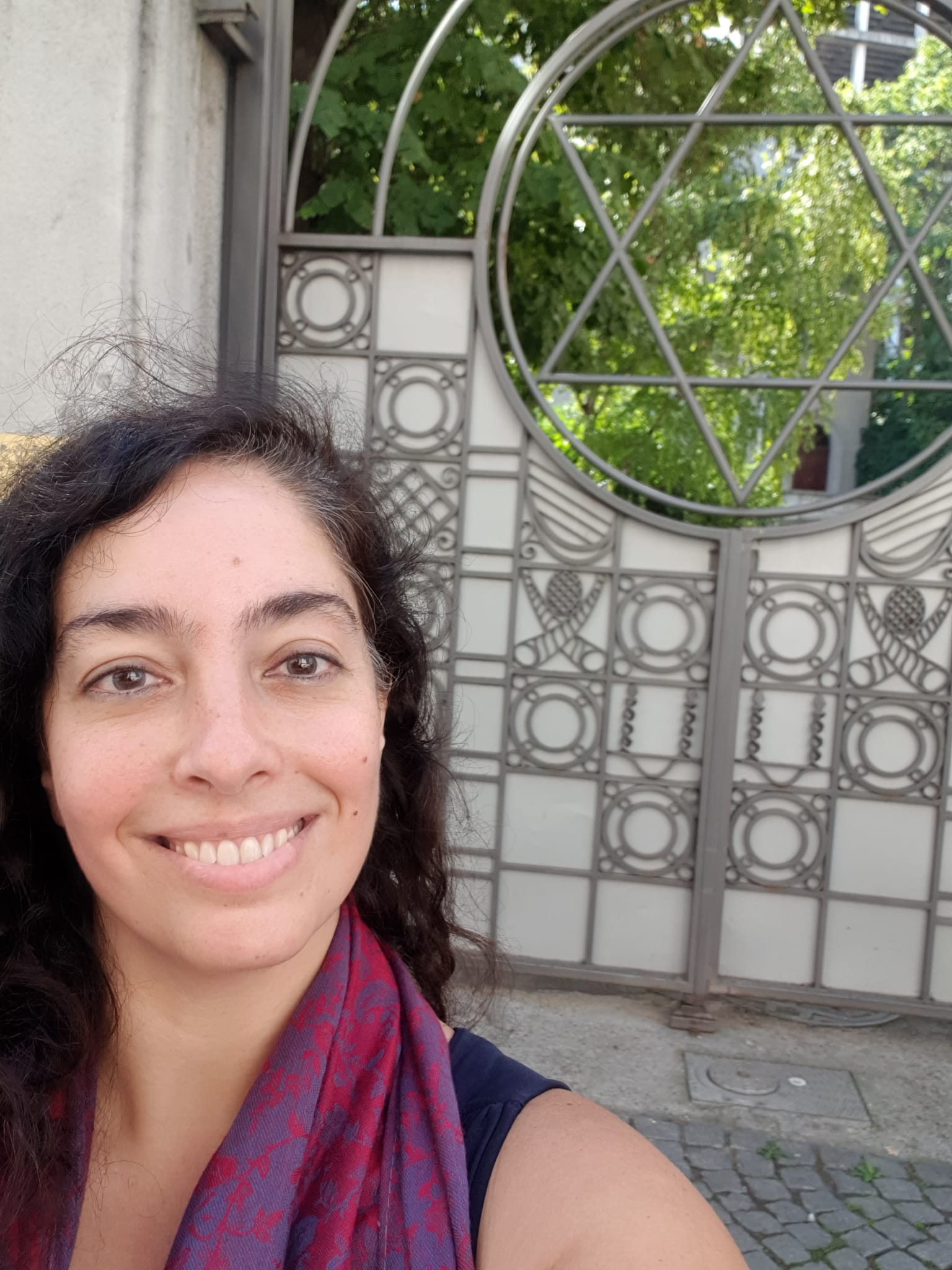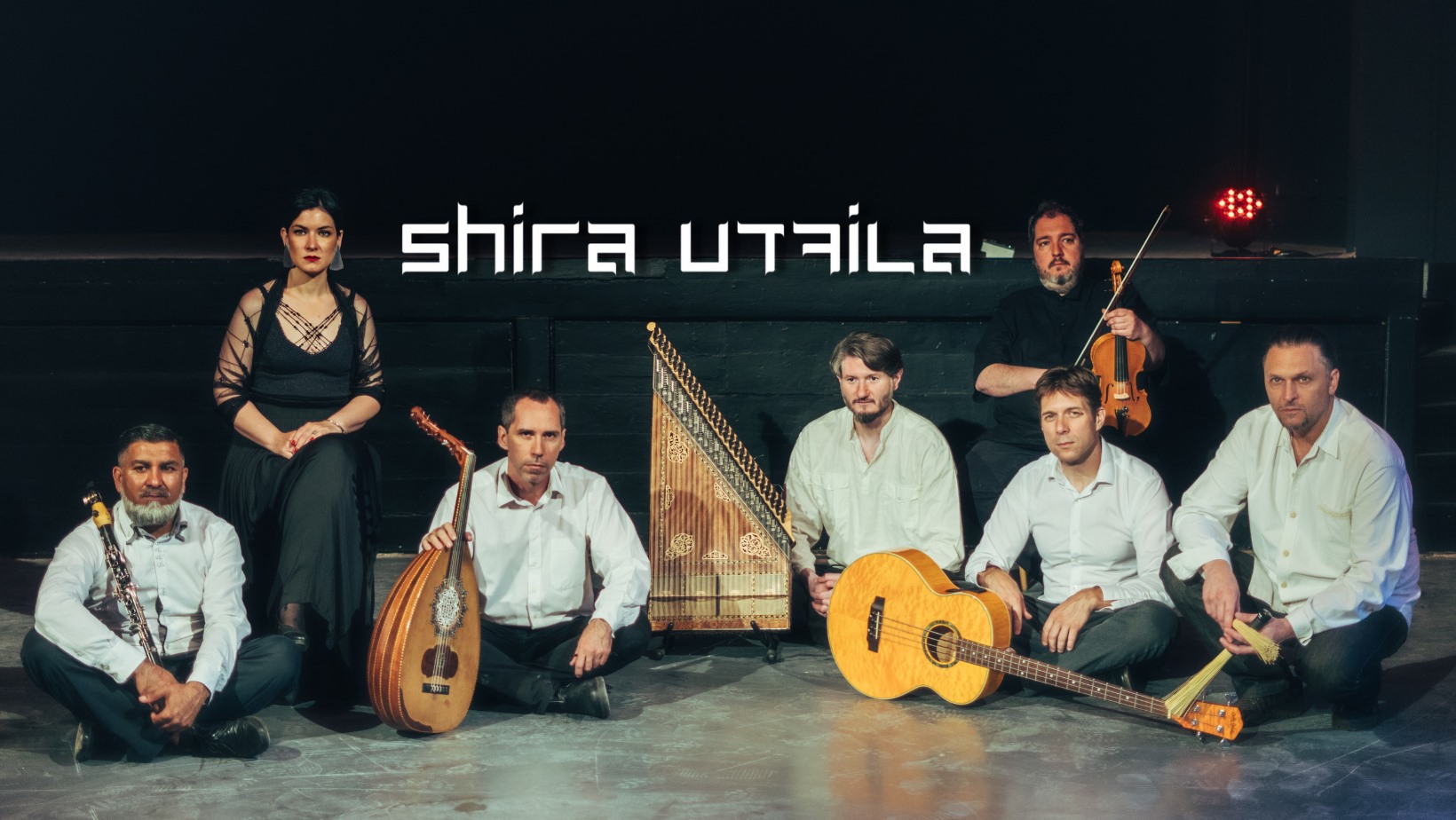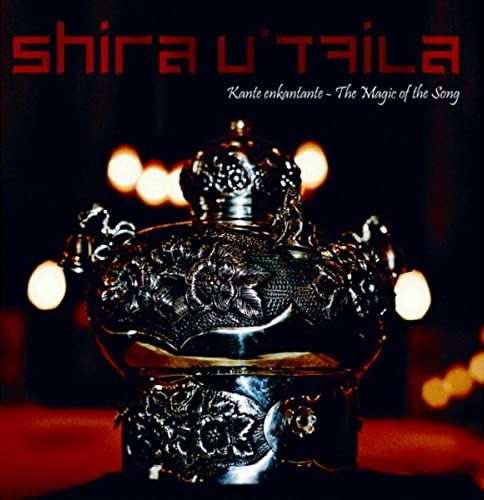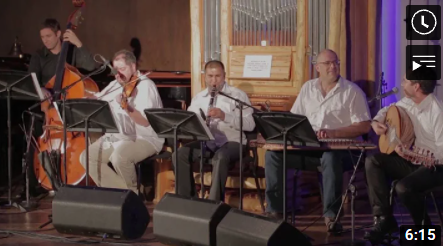October, 1st 2021 – Shabbat is almost here!
And today we will listen to a Serbian band currently active, Shira U’tfila, with a piyut for havdalah in Djudeo-Espanyol.
 Hello, how are you? I hope well. The festivities from the end of Summer and beginning of the Fall ended with Simchat Torah and now there is none until Hanukkah. The last year I made the edition of 9th of October dedicated to Simchat Torah, that was on day 10th. That edition is available here.
Hello, how are you? I hope well. The festivities from the end of Summer and beginning of the Fall ended with Simchat Torah and now there is none until Hanukkah. The last year I made the edition of 9th of October dedicated to Simchat Torah, that was on day 10th. That edition is available here.
And this year, the day of Simchat Torah I was in Serbia. The picture on the left is me in front of the door of the synagogue in Belgrade. And now that I am here I have learnt that there is a Jewish Cultural Center! ?♀️ So, I will have to return.
But indeed it is not easy to find music from the Serbian Jews. We visited the shop of the national radio, with recordings done by the institution over decades (from before and after the splitting of Yugoslavia) and I found nothing, at least nothing identifiable as such. Despite this, there is a very active Serbian group, Shira U’tfila, which mainly performs Sephardic songs.
Then, please, spread the word.
| Share this with a friend, right from here |
About Shira U’tfila

Shira U’tfila, or Utfila or U’t’fila, as you can find it in these several ways, is a Serbian band founded in 2000, specialized in Sephardic music. The founder and leader is Stefan Sablić, who also sings and plays oud. With him are nowadays Branislava Podrumac (voice), Filip Krumes (violin), Sinan Acifovic (clarinet), Srdjan Djordjevic (doublebass), Goran Milosevic (percussions) and Aleksandar Jovanovic Sljuka (piano). Check their website for further details.
Stefan Sablić is a personality for more reasons. He is also director of theatre as well as kanunist and director of the festival Ethno Fusion Fest, hazan of Belgrade’s synagogue “Sukat Šalom” (the one in my picture above) and founder of the Jewish Center for Culture and Art.
About the piece El Dio Alto
 This piece is included in the ? album Kante Enkantante – The Magic of the Song, recorded live at the Belgrade Ethno Fusion Fest and released in 2014.
This piece is included in the ? album Kante Enkantante – The Magic of the Song, recorded live at the Belgrade Ethno Fusion Fest and released in 2014.
They describe it as:
“a piyut for Havdala service famous throughout great Sephardic Jewish Communities of the Balkans”. If you are not used with the term havdalah, according to JewishVirtualLibrary, “havdalah is a ceremony recited at the termination of Shabbat and holidays. Its blessings emphasize the distinction between the sacred and the ordinary, particularly in regard to the holy day that is departing and the ordinary weekday that is coming. […] The primary symbols of havdalah are the braided candle, kiddush cup containing wine and spice box containing sweet-smelling spices.”.
According to Jasmina Huber in Wieviel Wandel verträgt eine Tradition? Gesang und Gebet der jüdischen Gemeinde Belgrad in den Herausforderungen der Gegenwart:
“the text of piyut El Dio Alto is attributed to Rabbi Abraham Toledo, a poet who belonged to the circle of Ottoman Jewish intellectuals of the late seventeenth and early eighteenth centuries. Such paraliturgical songs of historical, religious and political content, written mainly during the 18th and 19th centuries by poet-rabbis and referred to genre-wise as coplas, were intended to convey the messages of various religious events and texts to those members of the congregation (especially women) who did not understand Hebrew.”
The Rabbi Abraham Toledo was a famous coplero, writter of songs. For his bibliography, check this.
And in this interview of 2016, Stefan Sablić, the fonder and leader of Shira U’tfila said that:
“My latest project is recreating the music for the biblical poem “Las coplas de Yosef Ha-Tsadik” written in ladino by abraham toledo in the first half of the 17th century. This is probably the first Jewish musical ever written. It is rooted in the Biblical story of Joseph but set in the multicultural milieu of Sephardic world during the Ottoman Empire. This is a magnificent piece of poetry and a deeply moving story for which music was unfortunately lost, so I composed the music according to inscriptions found attached to some parts of the poem.
 Those inscriptions describe the maqam (musical mode i.e. scale) and the musical form in which a certain part of the poem has been performed. As a theater director (my official profession) I adapted and directed a musical drama performance that includes my band, choir and actors.”
Those inscriptions describe the maqam (musical mode i.e. scale) and the musical form in which a certain part of the poem has been performed. As a theater director (my official profession) I adapted and directed a musical drama performance that includes my band, choir and actors.”
| DJUDEO-ESPANYOL
El Dio alto con su gracia Veni todos ajuntemos Vos que sosh Padre rajmán |
ENGLISH
Most High God with His Grace Let us all come together O merciful Father |
